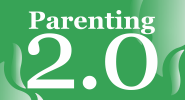Communications 101
What was the last thing that troubled you? Was it a disagreement with a colleague or a loved one – a child perhaps? Where did you learn communication skills? Who were your teachers? You were taught reading and history in school but were you also taught interpersonal communication skills? Did you ever contemplate your role in making history?
Rest assured you are. Every exchange with fellow human beings – whether disagreeing with someone at the office, disciplining your child or fighting with your spouse – contributes in thousands of ways to the larger story of humanity. Central to every interaction – business or personal – is communication.
How do people learn this critical Life Skill? From communication experts? Conflict resolution classes? Not usually. They learn from role modeling.
Why is it human beings enthusiastically embrace quality education from third party educators for everything from soccer to science, yet accept children simply learning what they live when it comes to interpersonal communication? What price does humanity pay for its failure to better appreciate this critical Life Skill?
Adults do, of course, routinely prepare millions of people to respond to crises in the communications arena – doctors, lawyers, law enforcement, military. Isn’t this about as logical as telling people to jump in the cockpit of 747’s absent quality instruction then cleaning up crash sites?
When couples struggle in relationships they are encouraged to attend “therapy.” Therapy comes from the word “remedial” meaning “to restore”. If you break a leg you attend therapy to restore your motor abilities. If you suffer a stroke, you attend therapy to restore cognitive abilities.
What couple attending therapy to learn quality communication skills ever enjoyed what anyone would define as highly competent ones? They are not restoring anything, they are learning it for the very first time. Shame is a lousy ingredient in any educational process.
If we can construct rockets that deliver people to the moon, might we also construct more dynamic means for empowering every individual with the skills necessary for success in the mandatory curriculum of communing with others?
How might the world change if instead of having “child care centers “ around the planet we respected these same facilities as Communication 101 Centers? How might school children blossom when we affirm for them the many ways people communicate – verbal and non-verbal – and their capacity to expand upon parents’ teachings? How might divorce rates decrease when these same children become adults and create their own families?
Options for change are as vast as the universe when we take the first small step of acknowledging the centrality of communication in every avenue of human interaction and advocate a more proactive educational process. Doing so will constitute one giant leap for mankind.
Editor’s Note: In 2012, Parenting 2.0 members made history by gathering professionals across multiple disciplines and continents for P20 Talks. P20 Talks was the first professional conference to recognize Life Skills as distinct, critical skill sets teachable by third party educators. Thought Leaders for P20 Talks 2012 Communication 101 panel included: Dr. Rosina McAlpine, Dr. Raelynn Maloney, Dr. Yvonne Sum, Melissa Pazen, Mark Romero, and Susie Walton.
